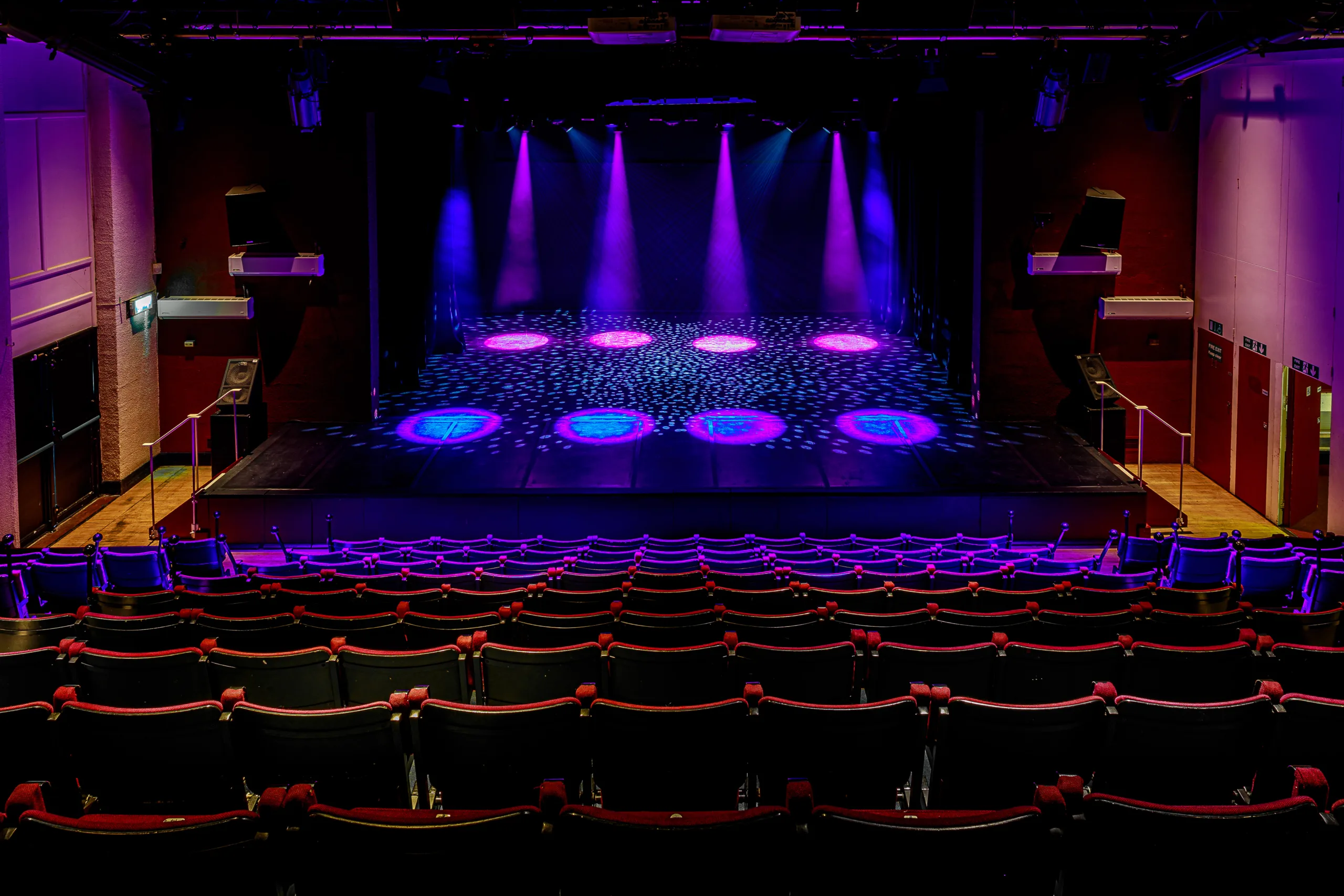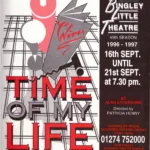Season 49 Play 1 – Time Of My Life by Alan Ayckbourn
Directed by
Cast
Laura – Brenda Bell
Glyn – David Templeton
Adam – Kevin Moore
Stephanie – Gilly Rogers
Maureen – Nicola Finn
Waiter – Peter Whitley
Synopsis
Gerry Stratton has organised a family dinner at a favourite restaurant to celebrate his wife’s birthday. They are joined by their sons, Glyn with his wife Stephanie, and Adam who has brought along his new girlfriend, Maureen. A happy occasion, seemingly, but within the framework of that evening there are many disclosures as stories move backwards or forwards in time. It is “funny, very funny, and not at all funny; quintessentially Ayckbourn.
Directors Notes
It is always daunting to be asked to direct an Alan Ayckbourn play, one never knows what puzzles he is going to give one to unravel this time. Will you have to have three different functioning kitchens, a car in a garage that needs to be worked on mechanically throughout the play or a river with a boat on it – Capable of being sailed of course! This play is comparatively easy – it only requires one Greek, Italian or Turkish restaurant and three different time scales – it wouldn’t do for it to be too straight forward would it? Ayckbourn isn’t the first writer to examine the function of time. J. B. Priestley did many famous plays centred around the theme of time and how, or if, reality exists within time and whether that reality is capable of change; H. G. Wells travelled through time both backwards and forwards; Gene Roddenberry gives us a weekly diet of time through Star Trek, enabling us to travel at warp speed to some amazing places, and Dr Who, Time Lord, threatens a comeback ‘as we speak. Ayckbourn looks at our remembrance of time past: was it what we
thought it was, how did we get to that point in our experience and what happens afterwards? He does it through the lives of three couples from one family, one couple remain in the present, one move on to the future and one move backwards to the past, linked by the restaurant and the waiter(s) serving in it. It has all the Ayckbourn trademarks – it’s funny, it’s sad, it has passages of dialogue that seem familiar, because you’ve had that conversation yourself, and has that clinical insight into the daily superficiality of our twentieth century lives that can be quite chilling, whilst remaining immensely funny.


